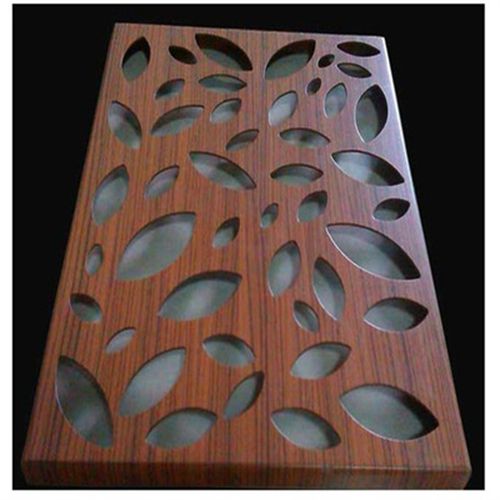

 Frequently asked questions
Frequently asked questions
With the continuous development of modern building technology, people's requirements for building materials are also increasing. In architectural design, in addition to aesthetics and practicality, sound isolation effect is also a very important consideration factor. Aluminum veneer, as a new type of building material, has attracted much attention for its sound isolation effect. This article will elaborate on the sound isolation effect of aluminum veneer from four aspects.
Aluminum veneer is a metal material with good sound isolation effect. Compared to other building materials, aluminum veneer has a higher density and a smoother surface, which can effectively isolate external noise. At the same time, the surface coating of aluminum veneer can also have a certain sound-absorbing effect, further improving the sound isolation effect. Research has shown that using aluminum veneer as building exterior wall material can reduce indoor noise by more than 10 decibels.
However, it should be noted that the sound isolation effect of aluminum veneer is not completely soundproof. In high-intensity noise environments, it is necessary to use other sound insulation materials in combination to achieve better sound insulation effects.
In practical applications, the sound isolation effect of aluminum veneer is closely related to the coordination effect of the building structure. Because building structures have a significant impact on the transmission and reflection of sound. If the building structure is unreasonable, even if high-quality sound insulation materials are used, it cannot achieve good results.
In this regard, aluminum veneer has great advantages. Aluminum veneer can be customized according to the structural characteristics of the building, and different thicknesses and shapes can be used to adapt to different building structures. Meanwhile, aluminum veneer can also be combined with other sound insulation materials to further improve the sound isolation effect.
In addition to the influence of materials and building structures, construction technology is also an important factor affecting the sound isolation effect of aluminum veneer. If the construction is not standardized or the materials are not installed properly, it will affect the sound isolation effect.
Therefore, during the construction process, it is necessary to strictly follow the relevant requirements for operation. Especially when installing aluminum veneer, attention should be paid to sealing and joint treatment to ensure that sound is not transmitted through the joints. At the same time, quality testing is also required to ensure that the material quality meets the requirements.
Aluminum veneer, as a building material, requires certain maintenance and upkeep to ensure its sound isolation effect. If maintenance is not carried out for a long time, it will lead to surface contamination and damage of the aluminum veneer, which in turn will affect the sound isolation effect.
Therefore, in daily use, it is necessary to pay attention to cleaning and maintaining the aluminum veneer. Professional cleaning agents and tools can be used for cleaning, while regular inspections and maintenance are carried out. This can ensure that the sound isolation effect of the aluminum veneer is always in the best state.
In summary, aluminum veneer, as a new type of building material, has a good sound isolation effect. However, it should be noted that the sound isolation effect is influenced by various factors, including the material itself, building structure, construction technology, and maintenance. Therefore, in practical applications, it is necessary to comprehensively consider various factors in order to achieve better sound isolation effects.